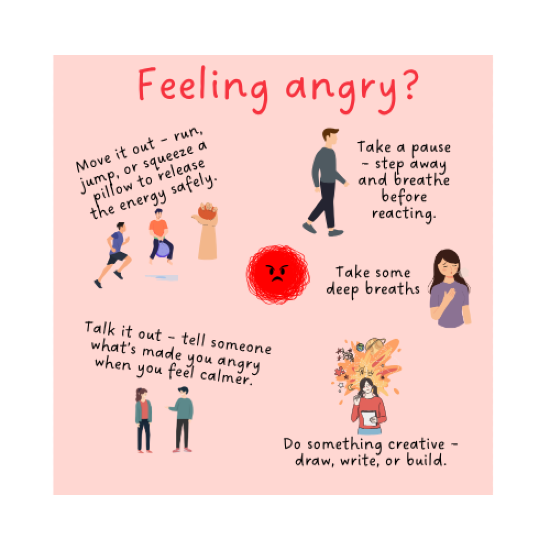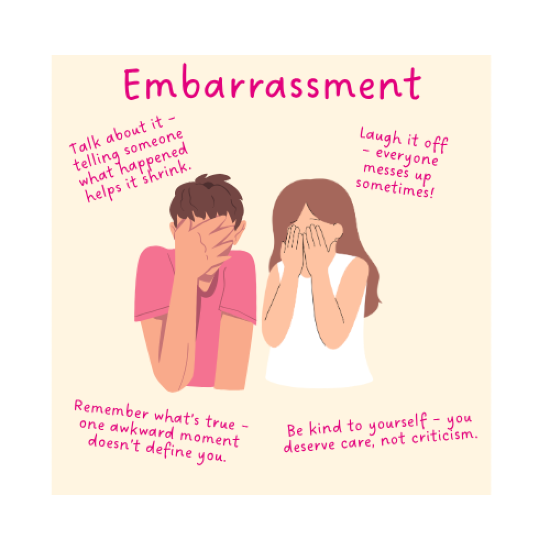More feelings files
Anger
It’s OK to feel angry — it’s what you do with that feeling that matters.
Anger is a strong feeling that everyone has sometimes.
It can show up when something feels unfair, when you get hurt, or when things don’t go your way.
You might notice:
- Your face feels hot or red
- Your heart beats fast
- You want to shout, cry, or slam a door
These are your body’s ways of saying, “I need to calm down!”
Anger itself isn’t bad — it’s how we use it that counts.
You can:
- Take a pause – step away and breathe before reacting.
- Move it out – run, jump, or squeeze a pillow to release the energy safely.
- Do something creative – draw, write, or build.
- Talk it out – tell someone what’s made you angry when you feel calmer.
If you get angry a lot or find it hard to calm down, that’s OK — it just means you might need a bit of extra support. Talking to a trusted adult can really help you work out what’s going on underneath.

Loneliness
Everyone feels lonely sometimes — even when they’re not alone.
Feeling lonely doesn’t mean there’s something wrong with you.
It just means you’re missing connection — maybe friends, family time, or people who “get you.”
You might feel:
- Left out or invisible
- Like no one understands you
- Sad, quiet, or like you don’t belong
It’s OK to feel this way. Lots of people do.
The good news is — there are ways to feel more connected again.
You could:
- Talk to someone you trust about how you feel — it helps to share it.
- Say hello or smile at someone — small things can start new friendships.
- Join in with clubs, sports, or hobbies where you can meet others.
- Be kind to yourself — loneliness doesn’t last forever, even if it feels that way.
If you feel lonely a lot or really sad, please talk to an adult you trust or visit Childline for help and ideas.

Embarrassment and Shame
Everyone feels embarrassed sometimes — and it always feels bigger in the moment than it really is.
We all do things that make us blush, go quiet, or want to hide under the duvet!
Feeling embarrassed is totally normal — it’s part of learning and growing.
Sometimes embarrassment can turn into shame, which is when you start thinking, “I’m bad” instead of “I made a mistake.”
But remember: you are never bad just because you made a mistake.
You might notice:
- A hot or red face
- Wanting to disappear or be alone
- Thinking about what happened again and again
Here are some ways to help:
- Talk about it – telling someone what happened helps it shrink.
- Laugh it off – everyone messes up sometimes!
- Remember what’s true – one awkward moment doesn’t define you.
- Be kind to yourself – you deserve care, not criticism.
When you talk about it or give it time, that horrible feeling fades. You’re still you.
